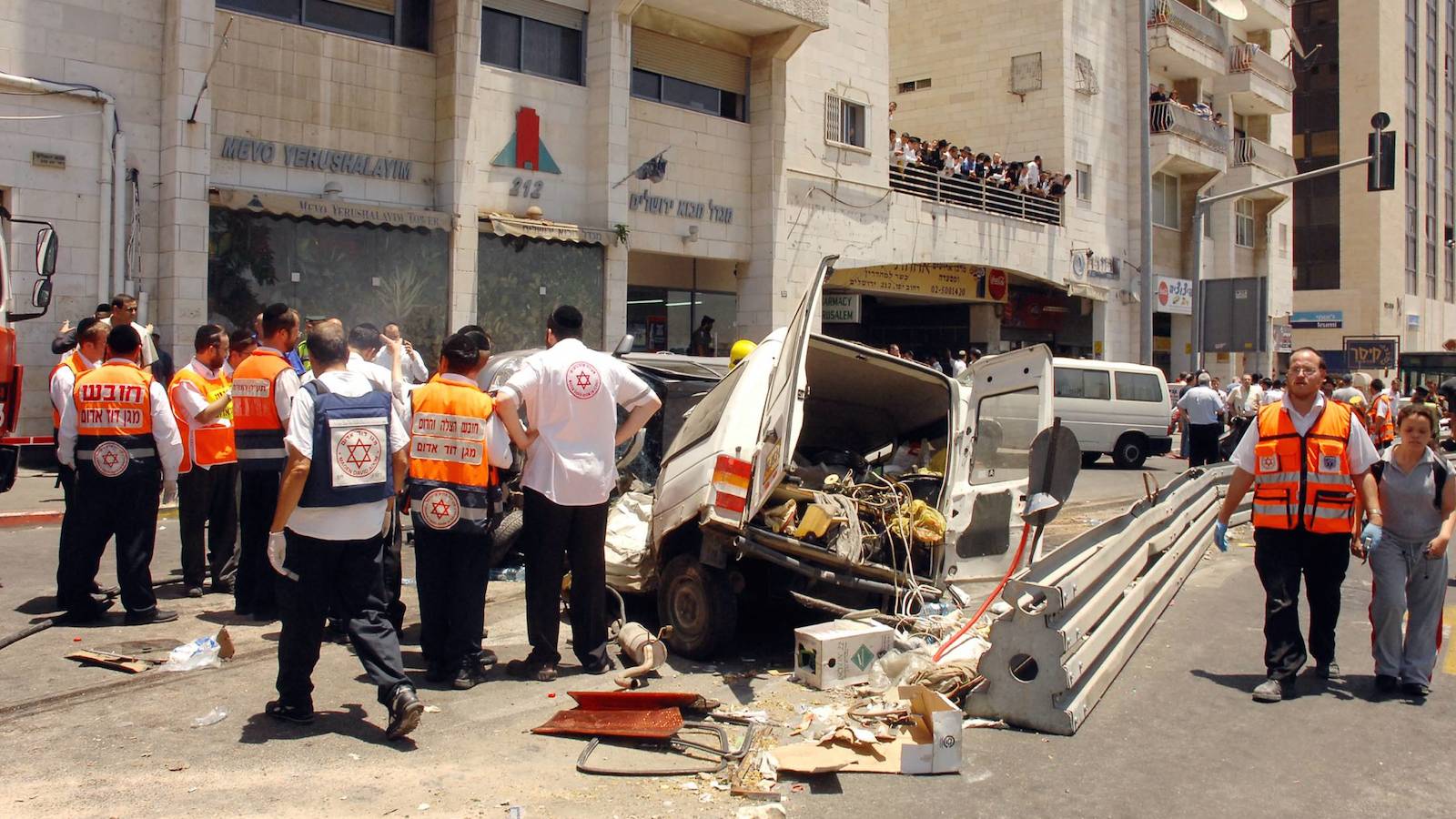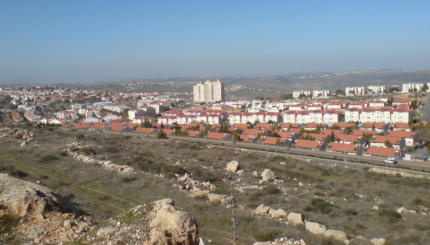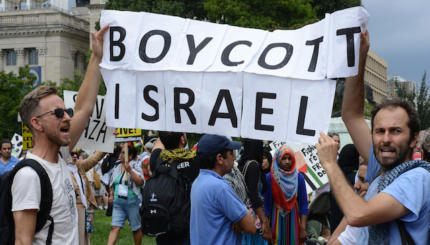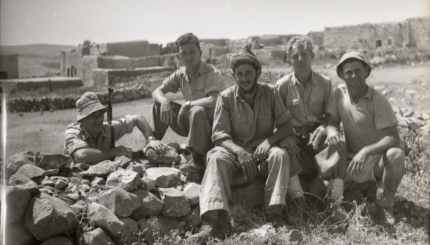Terrorism has been a feature of life in Israel since even before the country’s establishment in 1948. According to data maintained by the Israeli government, as of 2017 approximately 3,100 people have died in terrorist attacks in Israel’s history — the bulk of them victims of politically motivated violence perpetrated by Palestinians.That figure does not include civilian victims of Israeli military operations, which Palestinians sometimes describe as “state terrorism,” nor does it include the small number of Palestinian victims of political violence carried out by Israeli Jews. It does include 122 foreigners killed in attacks in Israel and 100 Israelis killed in terrorist attacks abroad.
Though more Israelis have died in wars, the per capita death rate from terrorism in Israel is high, and the threat is acutely felt throughout the country. Security measures are widely in evidence, from guards at the entrances to public facilities to an ingrained national reflex to call attention to unattended bags. Decades of hard-won experience have also burnished Israel’s image as a global leader in counterterrorism. Israel’s national airline, El Al, and its principal international airport are routinely cited as the most secure in the world.
When did terrorism in Israel begin?
According to the Israeli government, Arab terrorism targeting Jews traces back to the 1920s, when a series of riots gripped the land, which was then under British rule — most famously, perhaps, the 1929 Hebron massacre, which resulted in the deaths of nearly 70 Jews. Following Israel’s establishment in 1948, Palestinian guerrilla fighters known as fedayeen mounted cross-border raids that resulted in hundreds of Israeli deaths and prompted a number of reprisal attacks by the Israel Defense Forces in the 1950s and ‘60s.
Terrorism grew more sophisticated in the 1960s, with Palestinians launching a number of attacks on Israeli targets abroad and carrying out deadly bombings at home. In the 1970s, Palestinians successfully pulled off a number of high-profile attacks, including the 1972 murder of 11 members of the Israeli Olympic team in Munich, Germany, the 1976 hijacking to Uganda’s Entebbe Airport of an Air France plane en route from Tel Aviv to Paris, and the infamous 1974 attack on a school in the northern Israeli town of Maalot that culminated in the deaths of more than two-dozen people, 22 of them children.

Help us keep Jewish knowledge accessible to millions of people around the world.
Your donation to My Jewish Learning fuels endless journeys of Jewish discovery. With your help, My Jewish Learning can continue to provide nonstop opportunities for learning, connection and growth.
In the 1990s, the first suicide bombings were carried out by members of the militant Palestinian group Hamas. According to data from the University of Chicago, 114 such attacks, in which the assailant blows himself (or herself) up, have been carried out in Israel since 1994, resulting in the deaths of 721 people (including the perpetrators).
Who perpetrates terrorist attacks in Israel?
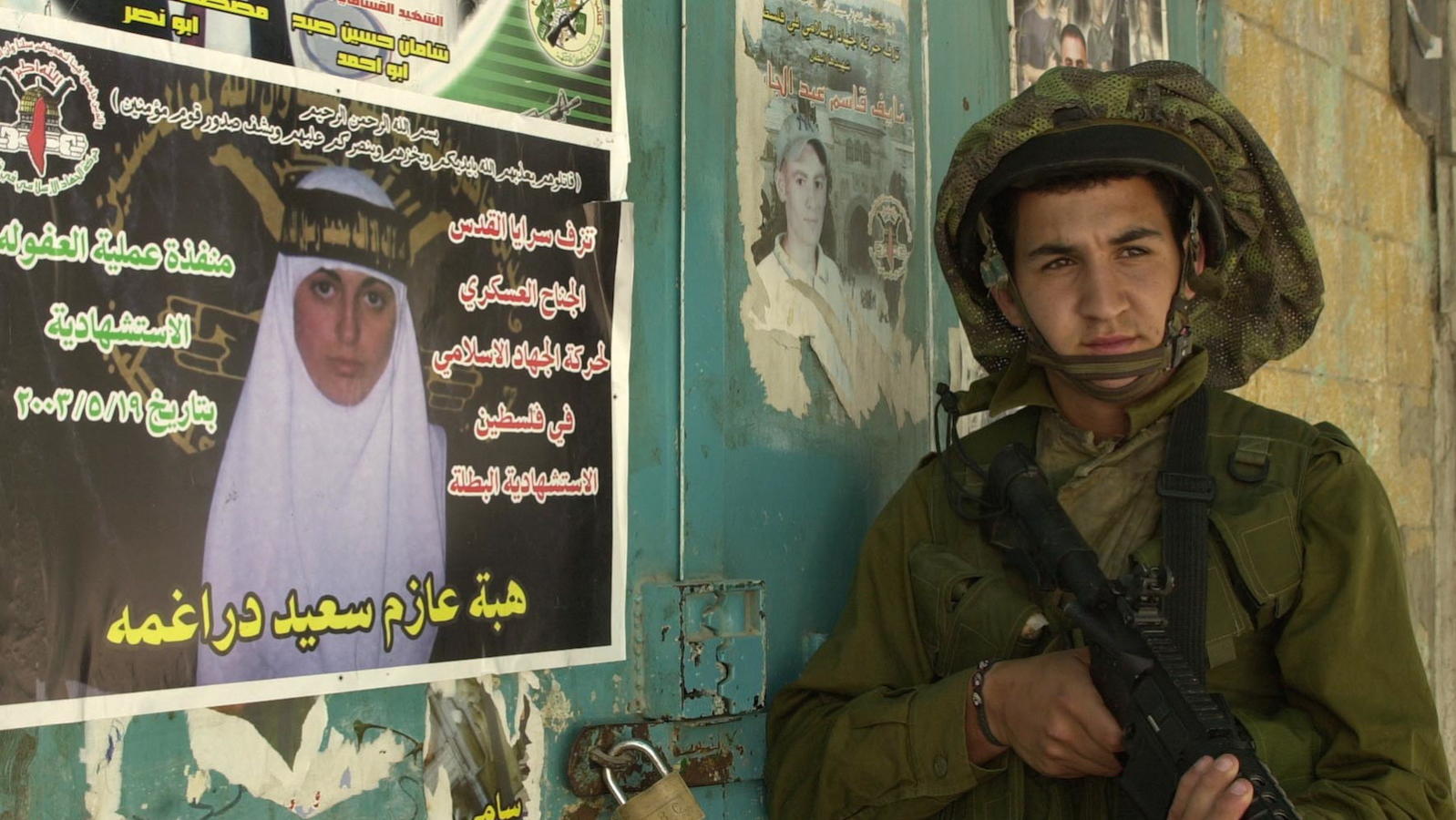
In nearly all cases, terrorist attacks in Israel are carried out by Palestinian extremist groups, though the particular perpetrators have changed over time. Prior to 1967, most terrorist attacks were carried out by loosely organized groups of militants. After 1967, Palestinian terrorism grew more organized, with most of the high-profile attacks carried out by affiliate groups of the Palestine Liberation Organization, founded in 1964 to wage armed struggle against Israel. The first high-profile attacks, in the late 1960s, were carried out by the Popular Front for the Liberation of Palestine, a secular group responsible for a series of attacks on El Al planes in the late 1960s. A number of splinter groups from the PFLP also executed deadly raids during that period, including the 1972 attack that killed 26 people at Lod Airport (now called Ben Gurion Airport) and the Avivim school bus massacre in 1970 that killed 12. Black September, a group of Palestinian fighters who took their name from the 1970 conflict that resulted in the expulsion of the PLO from Jordan, was behind the 1972 Munich attack. Fatah, the largest PLO faction, carried out the 1978 coastal road massacre, in which 38 Israeli civilians were killed.
As part of the Oslo peace process in 1993, PLO Chairman Yasser Arafat, in a letter to Israeli Prime Minister Yitzhak Rabin, recognized Israel’s right to exist in peace and security and further pledged that “the PLO renounces the use of terrorism and other acts of violence and will assume responsibility over all PLO elements and personnel in order to assure their compliance, prevent violations and discipline violators.” In the wake of the letter, terrorist violence against Israel was largely carried out by other Palestinian groups, although Israeli leaders have long alleged that Arafat never truly renounced violence and that he continued to incite and direct terrorist actions against Israeli civilians.
Two groups founded in the 1980s became major sources of terrorist violence in the 1990s and beyond and marked a shift from the avowedly secular Palestinian militants of the 1960s and ‘70s to an Islamic religious violence aimed at liberating Muslim lands from Jews. Hamas, which was founded in 1987 as an offshoot of Egypt’s Muslim Brotherhood, emerged as a major terrorist group after it carried out the first suicide bombings on Israeli targets in the mid-1990s. During the Second Intifada, Hamas was responsible for a number of high-casualty suicide attacks, including the Sbarro restaurant bombing in Jerusalem in 2001 (15 killed), the Dolphinarium disco bombing in Tel Aviv in 2001 (21 killed) and the 2002 bombing of a Passover seder at a Netanya hotel (30 killed).
Another Islamic terrorist group, Palestinian Islamic Jihad, founded in 1981, is financially supported by Iran and is linked to Hezbollah, the Iranian-backed militant group active in Lebanon. Islamic Jihad was responsible for the Maxim restaurant suicide bombing in Haifa in 2003 (21 killed) as well as a number of bus bombings. Numerous other smaller Islamic terrorist groups have also carried out deadly attacks on Israeli targets in the last two decades.
Beginning in 2015, Israelis began to face a new form of terrorism perpetrated by so-called “lone wolf” attackers — individuals with no established connection to a recognized terror group. Known informally as the stabbing intifada, the unrest that began in the fall of 2015 featured a number of attacks by people who wielded knives at civilians or rammed vehicles into pedestrians. Some of the attacks were carried out by Hamas cells, but others were perpetrated by individuals with no known terrorist affiliation.
What motivates Palestinian terrorism?
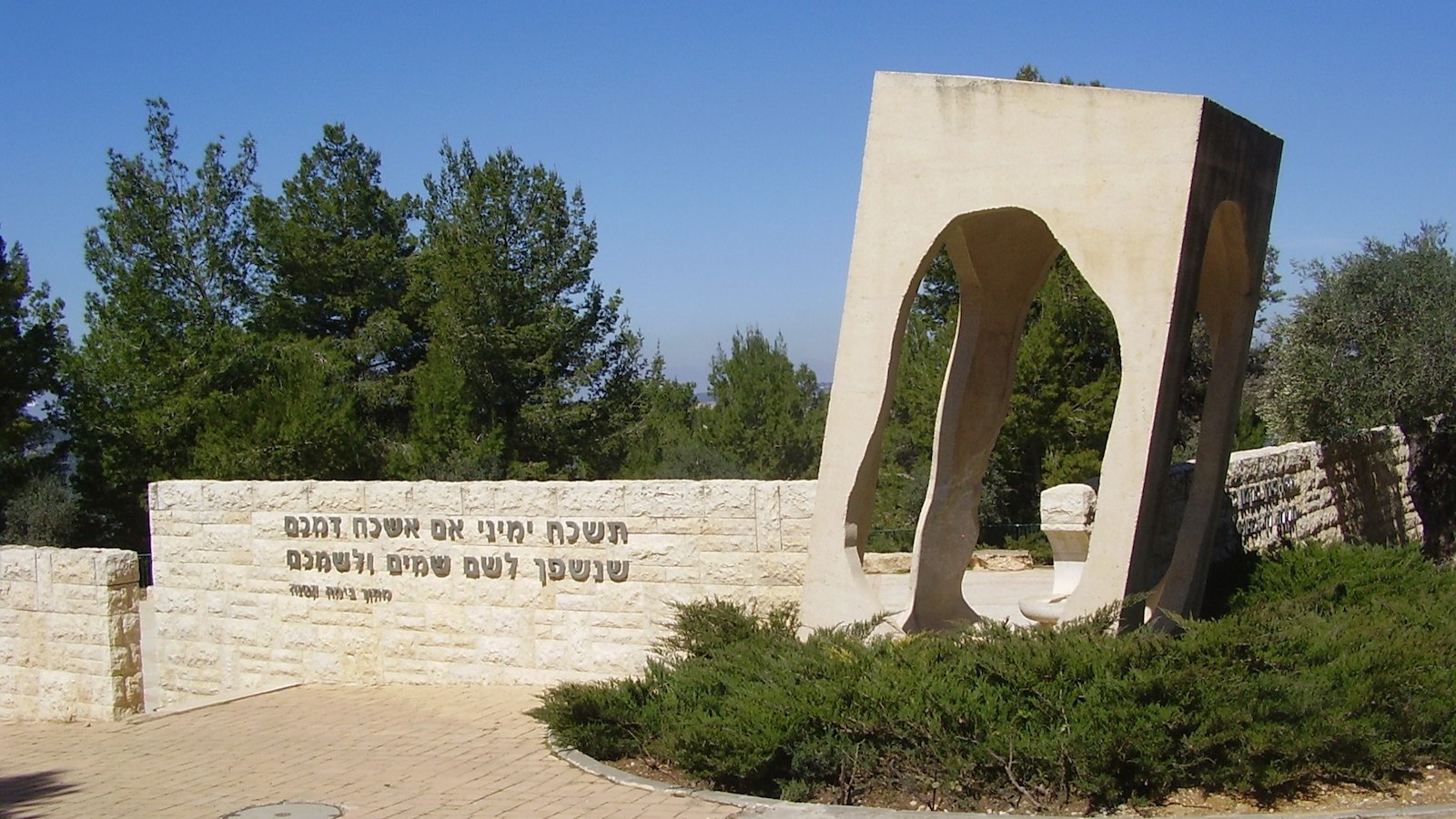
According to many Palestinians and their supporters, violence against Israel is driven principally by opposition to Israeli occupation of lands they believe are Palestinian. While some Palestinians specify that this means the West Bank, others believe terrorism is a legitimate form of resistance to Israel’s sovereignty anywhere in the Middle East. In a 2015 op-ed in the Guardian newspaper, Marwan Barghouti, a Palestinian activist currently serving multiple life sentences for murder in an Israeli prison, wrote that the “root causes” of violence in the region is “the denial of Palestinian freedom.” Some Israelis have also endorsed a version of this view, including, in 2016, the mayor of Tel Aviv Ron Huldai.
In a 2008 report to the U.N. Human Rights Council, Special Rapporteur John Dugard wrote of Palestinian terrorism: “While such acts cannot be justified, they must be understood as being a painful but inevitable consequence of colonialism, apartheid or occupation.” In July 2017, the Trump administration’s annual terrorism report asserted that “continued drivers of violence” include, among other things, Israeli settlement construction in the West Bank and lost hope in the eventual establishment of a Palestinian state — claims that drew immediate criticism from American Jewish groups.
To many Israelis and their supporters, this is nonsense. Far from being motivated by a desire to end the occupation, Palestinians are, according to this argument, truly driven by a continuing failure to come to terms with the legitimacy of a Jewish state in the Middle East. Many Israelis note, for instance, that violence against Jews predated not only the occupation of the West Bank, which began after the 1967 Six-Day War, but even prior to the establishment of Israel in 1948. They further note that Israeli withdrawal from the Gaza Strip, the dismantling of all settlements there and the relocation of thousands of Israeli settlers did not bring an end to violence emerging from the coastal territory and aimed at Israeli population centers. These Israelis further argue that violence against Israeli civilians is not intended to bring about peaceful coexistence, citing as evidence Hamas’ longstanding refusal to recognize Israel’s legitimacy and right to exist.
Israeli leaders have routinely placed blame for terrorist activity on the Palestinian leadership, which it accuses of inciting violence against civilians by praising terrorists and demonizing Israelis in official media and educational materials. In 2016, Israeli Prime Minister Benjamin Netanyahu declared that terrorist attacks “don’t come because of [Palestinian] despair and the frustration over the inability to build. They come because of [Palestinian] despair and the frustration over inability to destroy.”
What has Israel done to protect itself?

Over the years, Israel has developed a broad range of counterterrorism strategies that are often regarded as the best in the world. Following the spate of airplane hijackings in the late 1960s, Israel implemented stringent aviation security protocols that successfully brought the practice to a halt. Israel’s Ben Gurion Airport employs multiple rings of security, beginning with perimeter inspections of entering vehicles by armed guards and including sophisticated screening technologies for people and baggage. Security personnel attempt to identify potential attackers for more extensive screening based on observed behavior or how they respond in an interview with a security officer, something to which all passengers are subjected. Though Israeli officials tend not to discuss such security measures, the process is widely understood to focus greater scrutiny on Arab and Muslim passengers, a practice that has drawn protests from civil rights groups. Similar methods are employed by El Al security personnel at airports around the world.
Israel’s counterterrorism strategy has both offensive and defensive components. Israeli intelligence and security agencies continually act to undermine terrorist groups, remove key terrorist figures through arrests and targeted killings, and foil emerging plots. Defensively, Israel has employed a number of controversial — some say counterproductive — measures, including the use of traffic checkpoints and the construction of a miles-long security barrier in the West Bank. On the home front, the Iron Dome missile defense system has proven extremely effective at taking out rockets fired at Israeli population centers. Meanwhile, Israel has successfully inculcated a culture of preparedness and caution that extends into virtually every aspect of civilian life. Nearly every public gathering place is protected by a guard or a metal detector — and often both. Bomb squads are routinely summoned when unattended items are spotted — known in Hebrew as a “hefetz hashud,” or suspicious object.
Are acts of terror ever committed by Jews?
Yes. Prior to Israel’s establishment, a number of Jewish militias carried out attacks that resulted in civilian deaths. Though much of the violence was targeted at British military personnel, many civilians died in those attacks. Palestinian Arabs were also directly targeted in reprisal attacks.
Among the most notorious acts of Jewish terrorism in pre-state Israel was the bombing in 1946 of the King David Hotel in Jerusalem, where British authorities then ruling the area had their headquarters. Dozens were killed and over 100 injured in the attack, which was carried out by the Irgun, a paramilitary group that split from the larger Haganah. In 1948, in the weeks leading up to Israel’s establishment and the outbreak of the War of Independence, the Irgun participated in the infamous Deir Yassin massacre, in which over 100 Palestinians were killed in an Arab village near Jerusalem. The Lehi (sometimes known as the Stern Gang), which also participated in the Deir Yassin killings, was responsible for a number of attacks in the 1940s that killed civilians as well as British soldiers.
In the decades since Israel’s establishment, a number of Jewish groups, many of them associated with Israel’s settler movement, have committed acts of violence against Palestinians. The most deadly attack came in 1994, when American-born physician Baruch Goldstein opened fire on Muslim worshippers at the Cave of the Patriarchs in Hebron, killing 29 people before being beaten to death. Goldstein was a member of Kach, a movement associated with the American-born Israeli rabbi Meir Kahane who was assassinated in New York in 1990. Both Kach and its offshoot Kahane Chai (“Kahane Lives”) are designated as foreign terrorist organizations by the U.S. State Department. Kach was officially outlawed in Israel in 1994, but the group still has supporters. In 2005, an Israeli army deserter believed to be a Kach supporter opened fire on a bus carrying Arab Israelis, killing four.
Israeli settlers have also been behind the so-called “price tag” attacks, which began in the early 2000s and were so named because they aimed to exact a price for Palestinian violence against Israeli civilians. Many of these attacks were acts of vandalism or harassment; however they included fatal attacks as well. In 2014, Israeli settlers abducted and murdered a Palestinian teenager, Mohammed Abu Khdeir, apparently in response to the abduction and murder of three Israeli teenagers some weeks earlier. That same year, the State Department mentioned price tag attacks in its annual terrorism report. In 2015, three Palestinians, including an 18-month-old boy, were killed in the village of Duma when their home was firebombed by Jewish settlers.
Does terrorism make Israel risky for tourists?
Not really. Though terrorist attacks dominate the news, and foreign governments will occasionally warn their citizens about traveling to Israel at times of unrest, statistically the likelihood of being killed or injured in a terrorist attack in Israel remains small. According to the Israeli government, only 122 foreigners have been killed in attacks in Israel, a tiny fraction of the millions of tourists who typically visit Israel each year. Even in peaceful periods, foreign travel warnings will typically specify particular areas to avoid — among them the Gaza Strip and adjacent areas, as well as certain areas of the West Bank and along Israel’s northern border with Syria and Lebanon. Travel warnings also note the possibility of random violence and urge heightened awareness and the avoidance of crowds.
A few high-profile deaths have drawn attention to the dangers for tourists. In 2016, American military veteran Taylor Force died in a stabbing attack in Tel Aviv while in Israel with a study group from Vanderbilt University. In 2002, a bombing at a Hebrew University cafeteria in Jerusalem resulted in the deaths of nine individuals, including several American students. The 1995 death of American Alisa Flatow in a bus bombing led to a lawsuit by her family that resulted in a landmark $248 million dollar judgement against the government of Iran, which an American federal judge ruled was complicit in Flatow’s death. In 2017, the parents of an American killed in 1996 sued two Chicago-based Palestinian groups in an effort to recover a $156 million judgement against a number of Palestinian organizations.
